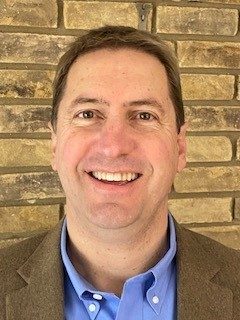Randal Boldt is the new director of the Counseling Center. With 30 years of experience in community mental-health and college counseling, Boldt brings skill and passion to the campus community. Drawn to MSU by the University’s steadfast commitment to breaking down barriers and increasing diversity and inclusion, Boldt plans to improve community and outcomes on campus.
“I first fell in love with this University when I learned about its mission and passion for investing in student success, with an emphasis on reducing barriers, increasing equity and valuing diversity — and building a community where everyone can belong,” Boldt said. “And I have seen this mission echoed across the campus.”
Boldt believes in using and applying best practices from emerging research to help the community thrive. “As a theme, I’m looking for research that supports methods and practices that help build community, that help build connection, that bring people together to flourish and have strong mental health together in community,” he said.
His long-term vision for the Counseling Center includes increasing its visibility among students, expanding the mental-health services offered, expanding access to those services and establishing clinical and community interventions for students.
“The world’s a challenging place, and we’re all struggling,” Boldt said. “If we can build those connections, it inoculates us against stress and mental-health challenges. It also allows us to flourish, overcome barriers and learn to rise together. Broadly speaking, that’s my hope for the University.”
The theme of Boldt’s career, he said, has been “transformational relationships.”

“I see human connection and relationship as the antidote for so much that doesn’t go right in our world — for stress, for loneliness, for divisions in our society, for the breakdown of belonging and community,” he said.
Boldt hopes to build stronger relationships with faculty and staff members and to engage them in the center’s mission. Recognizing the roles that employees play in students’ lives, Boldt said the Counseling Center is available not only to support students but to back up faculty and staff members as well.
“I would encourage (employees) to think about the impact they can have on a student and through various means communicate this message that ‘I see you; I hear you. I’m going to walk beside you as you figure this out,’” he said. “I think that’s on one side of it but also equally to know your limits as a faculty or staff (member) that you’re not alone either, and the Counseling Center is here to support you and back you up and so encourage students to come to see us.”
Counseling Center services are free and confidential for students and offer referrals for faculty and staff members. Learn more by visiting the Counseling Center website (link) or calling 303-615-9988. After 4:30 p.m. and on weekends and holidays, please use the 24/7 Crisis and Victims Assistance Line: 303-615-9911.

